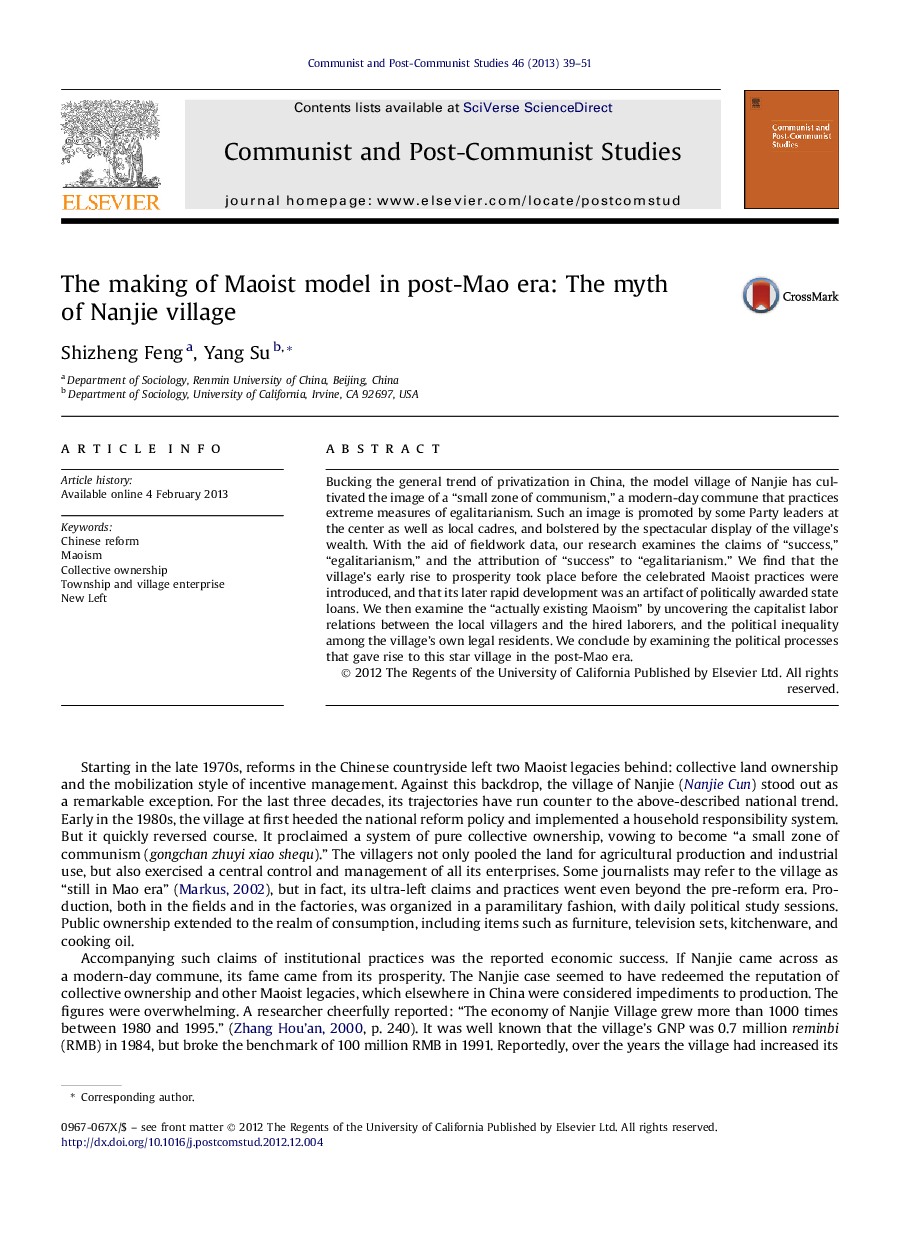| Article ID | Journal | Published Year | Pages | File Type |
|---|---|---|---|---|
| 1046609 | Communist and Post-Communist Studies | 2013 | 13 Pages |
Bucking the general trend of privatization in China, the model village of Nanjie has cultivated the image of a “small zone of communism,” a modern-day commune that practices extreme measures of egalitarianism. Such an image is promoted by some Party leaders at the center as well as local cadres, and bolstered by the spectacular display of the village's wealth. With the aid of fieldwork data, our research examines the claims of “success,” “egalitarianism,” and the attribution of “success” to “egalitarianism.” We find that the village's early rise to prosperity took place before the celebrated Maoist practices were introduced, and that its later rapid development was an artifact of politically awarded state loans. We then examine the “actually existing Maoism” by uncovering the capitalist labor relations between the local villagers and the hired laborers, and the political inequality among the village's own legal residents. We conclude by examining the political processes that gave rise to this star village in the post-Mao era.
